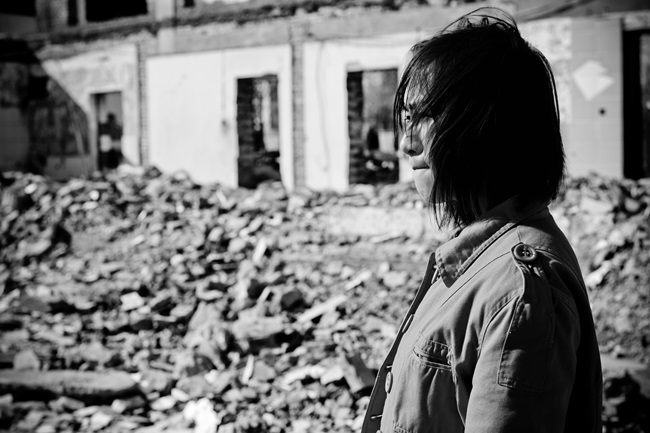Jan 14, 2026
Jan 14, 2026
Unraveling Global Stability & Preparing for an Uncertain Future
What happens when diplomacy falters, and egos eclipse reason? How would the lives of billions be affected if the world’s fragile geopolitical fabric gives way to another devastating global conflict?

As tensions escalate across key regions, could humanity be hurtling toward the unimaginable reality of World War III, and what would its catastrophic repercussions mean for the everyday lives of people around the globe?
The Escalating Path to Global Catastrophe
| Is humanity willing to rise above its differences, or will it succumb to the chaos of its own making? |
The current geopolitical landscape is fraught with tension, mistrust, and power struggles. From the ongoing Russia-Ukraine conflict, mounting tensions in the South China Sea, and strained U.S.-China relations, to volatile situations in the Middle East, the signs of an impending large-scale war are becoming alarmingly visible. The proliferation of nuclear weapons and advancements in military technologies have turned even minor conflicts into potential flashpoints for global escalation.
Trade sanctions, territorial disputes, cyber warfare, and the rise of nationalistic fervor in major global players are further exacerbating the situation. As global alliances harden into factions — such as NATO versus emerging blocs like the Russia-China-Iran nexus — the specter of a full-scale global war becomes more plausible with each passing day.
The Human Cost: Ripple Effects on Daily Life
If World War III were to break out, the ramifications would extend far beyond the battlefields, impacting every corner of the globe. The common man would bear the brunt of its fallout, with the following areas being the most profoundly affected:
1. Disruption of Global Trade & Supply Chains
In a globalized economy, the war would choke major trade routes and cripple supply chains. Essential commodities such as food, medicine, and energy would face severe shortages as countries divert resources for military needs. The disruption of international logistics would also render exports and imports unreliable, crippling industries dependent on raw materials from abroad.
2. Skyrocketing Prices & Inflation
With limited supply and heightened demand, inflation would spiral out of control. Prices of essential goods — food, fuel, and basic utilities — would soar, making it difficult for families to afford even the most basic necessities. In war-affected regions, hyperinflation could collapse economies entirely, leading to widespread poverty.
3. Rising Unemployment & Economic Recession
A global war would force industries to shut down, particularly those reliant on international markets. Job losses would skyrocket as businesses close or relocate, plunging millions into unemployment. Coupled with rising living costs, this would lead to a global economic recession, the effects of which could persist for decades.
4. Food & Water Shortages
Agricultural production would take a massive hit due to disrupted supply chains, lack of labor, and restricted access to fertilizers and farming technologies. Water resources would also be diverted to support military operations, leading to scarcity in civilian populations. Starvation and malnutrition could become widespread in war-torn areas.
5. Threat of Nuclear Annihilation
The ultimate horror of World War III lies in the possibility of nuclear conflict. With major powers like the United States, Russia, and China possessing extensive nuclear arsenals, a single miscalculation could lead to catastrophic loss of life and irreversible environmental damage. Fallout from nuclear strikes would contaminate land and water, rendering large swathes of the planet uninhabitable.
6. Social & Psychological Impacts
War on such a scale would cause unimaginable psychological trauma. Families would be torn apart, millions displaced as refugees, and generations would grow up scarred by the horrors of conflict. Trust among communities and nations would erode, giving rise to a fractured global society.
How to Prepare: Measures for Common People
While individuals cannot prevent global conflict, there are steps they can take to mitigate its impact on their lives:
1. Stockpile Essentials: Maintain an emergency supply of food, water, medicines, and other essential goods to sustain your family in times of scarcity.
2. Diversify Skills: Acquire skills that are less likely to be impacted by economic disruptions, such as farming, healthcare, and technical trades.
3. Invest in Community Resilience: Build strong local networks to share resources, skills, and support during crises.
4. Financial Preparedness: Save money in secure, diversified forms, including cash, precious metals, and non-perishable goods. Avoid over-reliance on any single financial system.
5. Stay Informed: Keep updated on global news and local advisories. Knowledge is critical in making informed decisions during uncertain times.
6. Mental Well-being: Practice mindfulness, meditation, or other techniques to maintain mental resilience and cope with stress.
7. Emergency Plans: Have a clear plan for evacuation or shelter, including designated safe zones for your family.
8. Advocate for Peace: Use your voice to support diplomatic efforts, humanitarian causes, and policies that promote global stability.
A Stark Reminder: Lessons from History
The devastation of World Wars I and II should serve as sobering reminders of the immense cost of global conflict. Yet, humanity seems perilously close to repeating these mistakes. While governments and global leaders have a critical role in averting disaster, ordinary citizens must also recognize their power in shaping public opinion and pushing for peaceful resolutions.
Final Thoughts: The Responsibility of Preventing the Unthinkable
What will it take for humanity to step back from the brink of destruction? Can we learn from the scars of history to forge a path of cooperation rather than conflict? As the world teeters on the edge of unprecedented turmoil, the choices we make today — both as individuals and nations — will determine the fate of future generations. The time to act is now, before the shadow of war engulfs the light of peace.
Is humanity willing to rise above its differences, or will it succumb to the chaos of its own making? The answers lie in our collective will to choose unity over division. The question is: do we have the courage to make the right choice?
Image (c) istock.com
30-Nov-2024
More by : P. Mohan Chandran